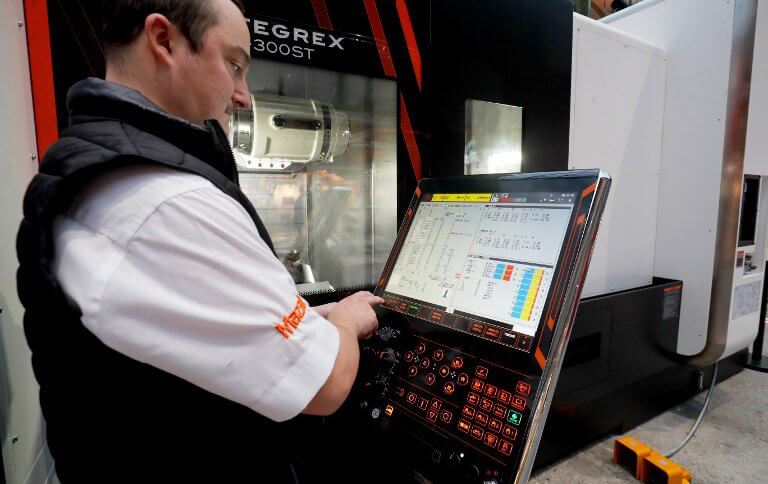AI to continue powering digital transformation

Artificial Intelligence (AI) is now a mainstay in the enterprise technology sector, and its impact is perhaps most evident in customer experience (CX) technologies in 2018, as digital transformation becomes the ultimate goal.
It has also brought about greater connectivity, realism, customization, security and a more informed populace that is concerned with the ethical side of these technological deployments.
Speaking to industry press, the Global Director of Business Automation at Genesys, Graeme Provan, said that AI, automation, and chatbots are becoming a big factor in aiding remote workers.
The on-boarding process and handling of employee churn are now faster and simpler using AI and robotic process automation (RPA).
These bots can identify repetitive actions, learn the employee’s workflow, determine which actions take the longest time, and find business benefits in automating certain tasks.
AI, IoT, and edge computing
There was an eruption of AI-backed IoT normalization in the market, with huge amounts of data to store and analyze. While AI and Machine Learning (ML) are capable of processing the data, it needs to be done in real-time.
The Content Marketing Manager of Good Firms, Kim Smith, believes that entire operations in 2019 will be pushing edge computing to not only reduce traffic and latency but also to accommodate latest AI technologies.
AI powered assistants are also becoming an increasingly important facet of the digital workplace. Nonetheless, she thinks that experiences with AI are frustrating as they still fail to connect with employees and customers on ‘humane grounds’.
Reality comes to the forefront
While most of us are aware of how VR and AR boost businesses, other AI-driven technologies are making an impact too. CEO and MD of Nearmap, Rob Newman, says that high-resolution, 3D-aerial imagery, for example, can deliver Reality-as-a-Service (RaaS).
Immersive 3D experiences could change the way we see streets, buildings, local infrastructure in live streamed reality. This changes everything.
“Some of the industries on the forefront of potential applications are autonomous driving, smart cities, retail and commercial development, mapping, architecture, design, construction, insurance and solar and engineering industries, among others,” he said.
Advertising gets personal
Much has been said about how advertising can get personalized and customized for certain targeted demographics, and AI is set to revolutionize this area of commerce.
CIO of StitcherAds, Conor Ryan, said advertisers are now dealing with data from a myriad of sources, including app events, CRM systems and customer generated content; thereby making manual segmentation of this data a challenge.
“To enable better personalization, we will need AI to determine where each consumer should see ads, the ad formats they should see, and how they should see them,” he added.
CEO at Mediafly, Carson Conant, believes that AI and ML will also serve as a catalyst to drive improvements in relation to sales enablement and customer relationships.
“AI and ML will be able to identify buying trends across integrated systems, and this will expand opportunities in both sales and marketing to help provide better experiences and drive results,” he said.
Security now gets a boost from AI
CEO of DH2i, Don Boxley, also states that AI is becoming a key factor in enterprises using it to secure IoT and hybrid cloud deployments as well.
With attacks from VPN sources becoming an increasingly common threat, a move towards ‘micro-perimeters’ is becoming a reality.
These ‘micro-perimeters’ are essentially a new class of purpose-built security software that can handle integrated on-premises systems and off-premises cloud/hosted resources.
“In 2018, improving the security of that high data flow with a zero trust security model drove enterprises to start replacing VPNs with micro-perimeters, by removing an IoT device’s network presence to eliminate any potential attack surfaces created by using a VPN,” he said.
Ethics take center-stage
According to the principal of ethical AI practice, Kathy Baxter, 2018 was the year of awakening, and 2019 will be the year of action. Fairness, accountability and transparency will be high on the list for all concerned.
The furor over social media giants and their collective attitudes to leveraging their users’ personal data for profits has led to consumers deleting their profiles altogether, in some cases, while most of them are rethinking their interactions with these products.
Many are saying that companies will be pressured to adopt responsible creation and use of AI, and governments will have to be more careful of how they use AI in terms of impacting human rights.
Employees may even demand greater control over what they create and might refuse to contribute to harmful automation.
Ultimately, every organization will need to trail blaze a path with their conscience very much intact in order to gain the trust and confidence of consumers who will extremely wary of their personal rights being compromised in any event.








